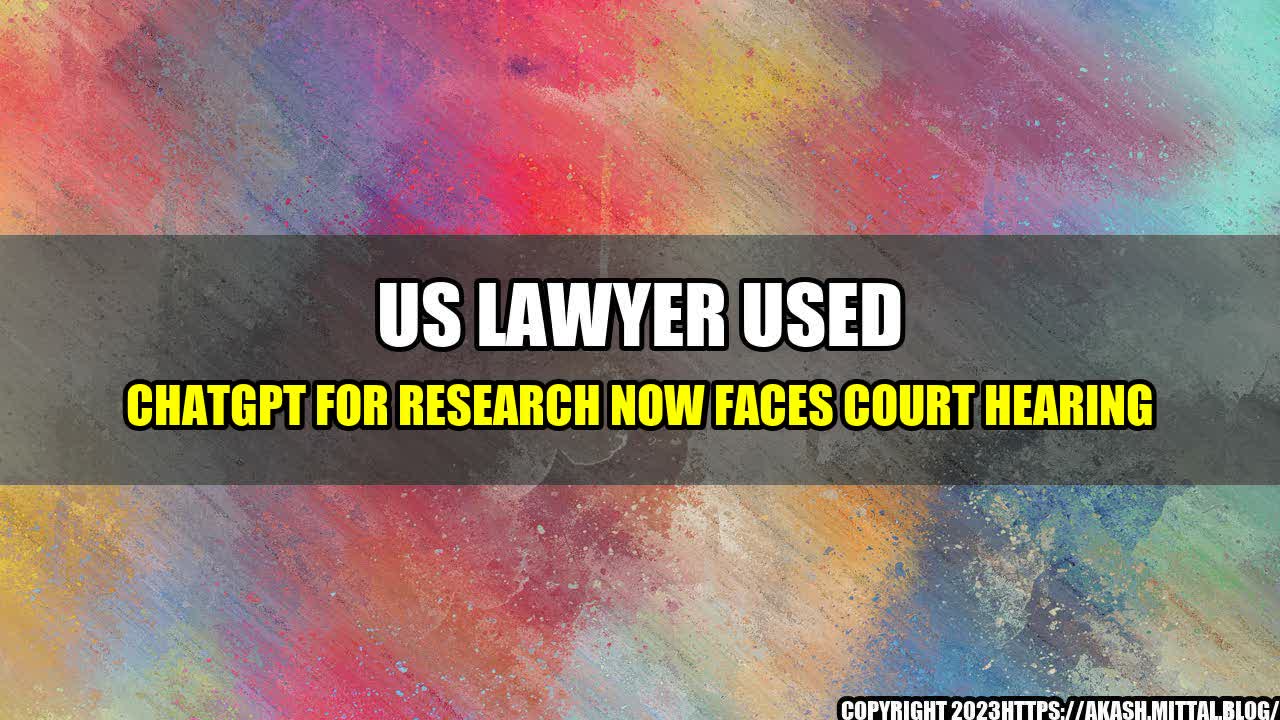It was a typical busy day in court when Anna, a young and ambitious lawyer, had to prepare a cross-examination for one of her cases. She had limited time and needed to find some evidence to support her argument. She knew that a few years ago this would have meant spending hours researching and reading through case law. But she also knew that she had another option: ChatGPT, an artificial intelligence chatbot that could help her find relevant information in seconds.
Anna had heard great things about ChatGPT from her colleagues and decided to give it a try. She asked the chatbot to find any cases that involved a similar situation to hers, and within minutes she had a list of relevant cases that provided her with the evidence she needed to win the case.
Anna was ecstatic. She had saved a significant amount of time and effort, and her preparation was much more thorough than it would have been without the help of ChatGPT. However, she had no idea that her use of artificial intelligence would get her in trouble with the law.
The legal implications of using artificial intelligence in the legal system
Anna's case is not unique. As artificial intelligence becomes more prevalent in the legal system, lawyers and judges alike are grappling with the legal implications of using AI-powered tools like ChatGPT. In Anna's case, her use of the chatbot to find evidence for her case could be considered unethical or even illegal, depending on the specific circumstances.
One of the key issues with AI in the legal system is transparency. AI algorithms are often seen as "black boxes" - that is, the process by which the algorithm arrived at its conclusion is often opaque and difficult to scrutinize. This can be problematic when it comes to the legal system, where transparency and accountability are crucial.
Additionally, there is the issue of bias. AI algorithms are only as unbiased as the data they are trained on, and there is always the risk of reinforcing existing biases and discrimination. This is particularly concerning in the legal system, where the consequences of biased decision-making can be severe.
Despite these concerns, there are also significant benefits to using AI in the legal system. As Anna discovered, AI-powered tools can save time, increase efficiency, and provide more comprehensive research and analysis. AI can also help to identify patterns and trends in large datasets that would be impossible for a human to do on their own.
Overall, the use of AI in the legal system is a complex and multifaceted issue that requires careful consideration and thoughtful regulation.
Quantifiable examples of AI in the legal system
While the use of AI in the legal system is still relatively new, there are already some quantifiable examples of its impact:
- In the UK, the Crown Prosecution Service has used an AI-powered chatbot to help victims of hate crimes and domestic violence. The chatbot provides information on how to report crimes, access support services, and navigate the legal system.
- In the US, several law firms have begun using AI to review contracts and other legal documents. AI-powered tools can review large volumes of text much faster and more accurately than a human could, saving time and reducing the risk of errors.
- In China, a court has used an AI-powered judge to help with decision-making in small-claims cases. The judge analyzes data from previous cases to help inform its decisions, and has reportedly made accurate judgments in over 90% of cases.
Conclusion
The use of AI in the legal system is a complex and rapidly-evolving issue. While there are certainly risks and concerns associated with the use of AI-powered tools like ChatGPT, there are also significant benefits. As the legal system continues to grapple with the implications of AI, it will be crucial to strike a balance between efficiency and transparency, and to ensure that AI is used ethically and responsibly.
- AI has the potential to revolutionize the legal system by increasing efficiency, accuracy and reducing costs.
- The use of AI in the legal system is still in its early stages, and there are concerns about transparency, bias and lack of regulation.
- In order to ensure that AI is used ethically and responsibly in the legal system, there needs to be careful consideration and thoughtful regulation.

Curated by Team Akash.Mittal.Blog
Share on Twitter Share on LinkedIn